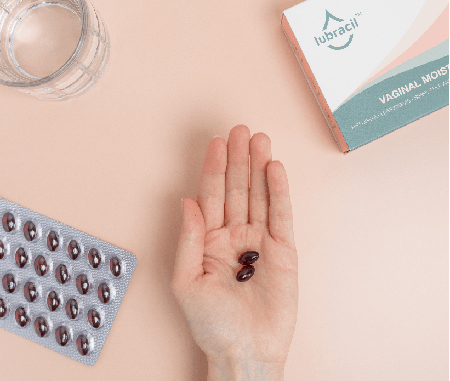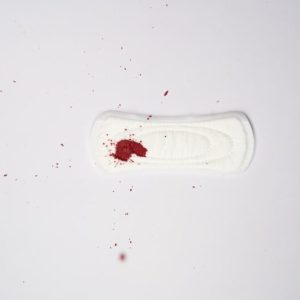Vaginal health directly affects your overall health. “Vaginal health” covers a wide range of factors, from sex and fertility to general health and more.
A healthy vagina has a suitable pH and is free of infection. Fortunately, there are various ways to ensure vaginal health, including the use of supplements. Researchers have studied various supplements for vaginal health, some of which seem more promising than others. These supplements contain vitamins, minerals and other vital nutrients.
This article covers the use of supplements to support vaginal health, including scientific evidence and specific examples. It also examines the causes of vaginal microbiome imbalance, the impact of nutritional deficiencies on vaginal health, and when to see a doctor.
Why do people use supplements to support vaginal health?
Similar to the gut, the vagina also has a microbiome that consists of beneficial microorganisms that help keep it healthy. Vaginal flora (bacteria) mainly consists of species called “Lactobacillus”. The main function of these bacteria and other bacterial species in the vagina is to produce antimicrobial compounds that fight against potentially harmful substances.
However, sometimes the vaginal microbiome can become unbalanced. An imbalance in the vaginal microbiome can promote the growth of harmful bacteria and other organisms that can lead to bacterial vaginosis (BV), yeast infections, sexually transmitted infections (STIs), urinary tract infections (UTIs). and fertility problems.
To maintain the health of the vaginal microbiome, some people turn to nutritional supplements.
There is evidence that some supplements are beneficial for vaginal health. Overall, these supplements help restore the vaginal microbiome and prevent infections and other problems.
Note that nutritional supplements are never a substitute for standard treatment for vaginal problems (or any other disease). Instead, dietary supplements may serve as a complementary treatment for vaginal health.

Common supplements for vaginal health
In the following, the scientific review of common supplements for vaginal health will be discussed.
Probiotics
Probiotics are often prescribed for digestive ailments, but they are also beneficial for vaginal health. Probiotics are “good bacteria” found in certain foods and supplements that can improve the balance of bacteria in your digestive and reproductive tract. According to one review, the use of probiotic supplements may support the vaginal microbiome and strengthen the immune system. In various studies, the role of probiotics in the treatment of bacterial vaginosis (BV) and vaginal atrophy has been shown. There is also evidence that probiotics may slow the progression of cervical cancer.
As for how to use probiotics for vaginal health, taking them orally may be the best way. While both suppositories and oral probiotics appear to be effective, oral probiotics may also benefit the gut microbiome.
Zinc
Zinc is a trace mineral that is essential for several aspects of your health, including cell growth, hormone regulation, and reproduction. Research shows that zinc protects the reproductive system by acting as an antioxidant. When applied externally, zinc may improve vaginal dryness and other symptoms associated with menopause.
In a small pilot study, women with typical menopausal symptoms, such as vaginal dryness, burning, itching, and pain, used a moisturizing gel containing zinc for two weeks. After using zinc gel, participants experienced improvements in these symptoms, the most important of which was vaginal dryness. More research is needed to determine whether zinc can be used in other ways to promote vaginal health.
Vitamin E
Vitamin E is one of the four fat-soluble vitamins. It also acts as an antioxidant and protects cells and tissues from damage.
Various studies have shown possible benefits of vitamin E in vaginal changes associated with menopause. However, researchers believe that vitamin E is best used as a complementary treatment. For example, when used alongside hormone replacement therapy (HRT), vitamin E may reduce vaginal atrophy, a common symptom of menopause.
Compared to placebo, vitamin E suppositories significantly improved menopausal vaginal symptoms. However, it is worth noting that more information is needed on the dosage and safety of vitamin E for vaginal health.

Vitamin D
Like vitamin E, vitamin D is a fat-soluble vitamin that may contribute to vaginal health in certain conditions. According to one study, insufficient or deficient levels of vitamin D may increase the risk of bacterial vaginosis (BV). In this study, women with BV were compared with healthy individuals. The researchers found that women with BV had lower levels of vitamin D in their blood than the control group. The role of vitamin D in menopause has also been investigated.
A review of available research showed that vitamin D may affect vaginal pH, improve vaginal symptoms, prevent vaginal infections, and improve sexual function in postmenopausal women. Both topical and oral vitamin D supplements appear to have benefits for vaginal health. However, not all studies conducted on vitamin D supplements for vaginal health have shown positive or even the same results. It is necessary to do more research in this field.
Vitamin C
Vitamin C is often suggested as an alternative treatment for bacterial vaginosis (BV) and other vaginal health problems. But does recent scientific evidence support these claims?
Despite its long history, new research is scarce. However, one study compared the effect of vitamin C with placebo in women with recurrent BV. Participants used vitamin C suppositories or placebo pills for six consecutive days each month for six months. Interestingly, the BV recurrence rate was significantly lower in the vitamin C group than in the placebo group.
But how can vitamin C be effective in this matter? Due to the acidic nature of vitamin C, it is thought to prevent the growth of harmful bacteria and thus BV by lowering vaginal pH levels. In other words, this is usually the task of the vaginal flora in healthy conditions.
Unfortunately, there have been limited studies on vitamin C and its effect on vaginal health. More up-to-date research is needed to confirm and understand these effects more precisely.
fish oil
Fish oil supplements, a common source of essential omega-3 fatty acids, have been used to treat a variety of vaginal health problems. In one study, the effects of fish oil supplements on vaginal health were compared with probiotics and placebo in pregnant women. Compared to a placebo, participants who took fish oil supplements during their pregnancy had fewer potentially harmful bacteria in their vaginal microbiome. Fish oil has also been shown to improve the vaginal microbiome when combined with probiotics.
There are claims that fish oil and omega-3 fatty acid supplements may also improve vaginal dryness. However, this claim is supported by very little research. More research is needed to better understand how fish oil may affect vaginal health.

Factors affecting the vaginal microbiome
The vaginal microbiome can change for various reasons. While some changes are normal, an imbalance in the microbiome may lead to BV, a yeast infection, or other issues. The vaginal microbiome naturally changes during hormonal fluctuations. These include puberty, the menstrual cycle, menopause and pregnancy.
An imbalance in the vaginal microbiome may also be the result of unprotected sex, antibiotic use, or douching. If your vaginal pH or microbiome is off, you may notice itching, burning, abnormal discharge, or an unusual odor.
Can vitamin deficiency cause vaginal problems?
Lack of certain vitamins may lead to problems with your vaginal health.
Some evidence points to vitamin D deficiency as a possible cause of BV and other vaginal health problems. One study found that women with low levels of vitamin D were more likely to develop BV. Other research has found a link between low vitamin D levels and worsening menopausal symptoms, including menopause-related heart disease.
Lack of vitamins, minerals and additional nutrients may also affect vaginal health. However, there is no strong evidence that any additional deficiency leads to vaginal problems. To ensure vaginal health, it is best to follow a balanced diet with all the necessary nutrients.
When to see a specialist doctor?
Some vaginal problems require seeing a doctor.
It’s important to be aware of possible signs and symptoms that indicate a problem with your vaginal health. Knowing these signs and symptoms is only one way to take care of vaginal health.
Possible symptoms of vaginal problems include:
• Abnormal discharge
• Severe itching
• Pain during sex
• Swelling and pain
• The smell of fish
• feeling irritated
• Redness
• Pain when urinating
Some of these symptoms may come and go, but anything severe or persistent should be investigated. You should also contact a doctor if you know you have been exposed to an STD or if you have a high fever or sores or blisters in your vagina.
A doctor will evaluate your symptoms and provide a treatment plan. Treatments may include medications, home care, or various alternative therapies.

Frequently asked questions about supplements for vaginal health
1. Are supplements useful for vaginal health?
Scientific evidence on the effectiveness of supplements for vaginal health is limited. Some research suggests that supplements such as probiotics, vitamin D, and vitamin C may be helpful in some cases, but more research is needed to confirm these findings and determine the appropriate dosage and timing.
2. What types of supplements are there for vaginal health?
The most common supplements used for vaginal health are:
• Probiotics: are “good” bacteria that can help maintain the balance of the vaginal microbiome.
• Vitamin D: helps strengthen the body’s immune system and maintain the health of vaginal cells.
• Vitamin C: helps to maintain the acidic pH of the vagina and prevent infections.
• Folic acid: helps the health of vaginal cells and prevention of cervical cancer.
3. What is the best supplement for vaginal health?
There is no single “best” supplement for vaginal health. The best supplement for you depends on your individual circumstances and needs.
4. Who should I consult with before taking any vaginal health supplements?
Be sure to consult your doctor before taking any supplements. Your doctor can help you determine if supplements are right for you and, if desired, choose the best supplement and dosage for you.
5. Can supplements replace medical treatments for vaginal health problems?
No, supplements should not replace medical treatment for vaginal health problems. If you experience unusual symptoms such as itching, burning, abnormal discharge, or foul odor, be sure to see your doctor.
final word
Vaginal health is a key factor in overall health, and it all starts with the vaginal microbiome. If the vaginal microbiome is out of balance, the risk of infection and other issues increases. Fortunately, there are steps you can take to keep your microbiome healthy, including supplements.
Research shows that certain supplements may support the vaginal microbiome as well as other aspects of vaginal health. However, supplements should only be used as an adjunctive therapy and under the guidance of a physician.
If you are interested in using supplements for vaginal health or if you have symptoms of vaginal disease, talk to a doctor.





